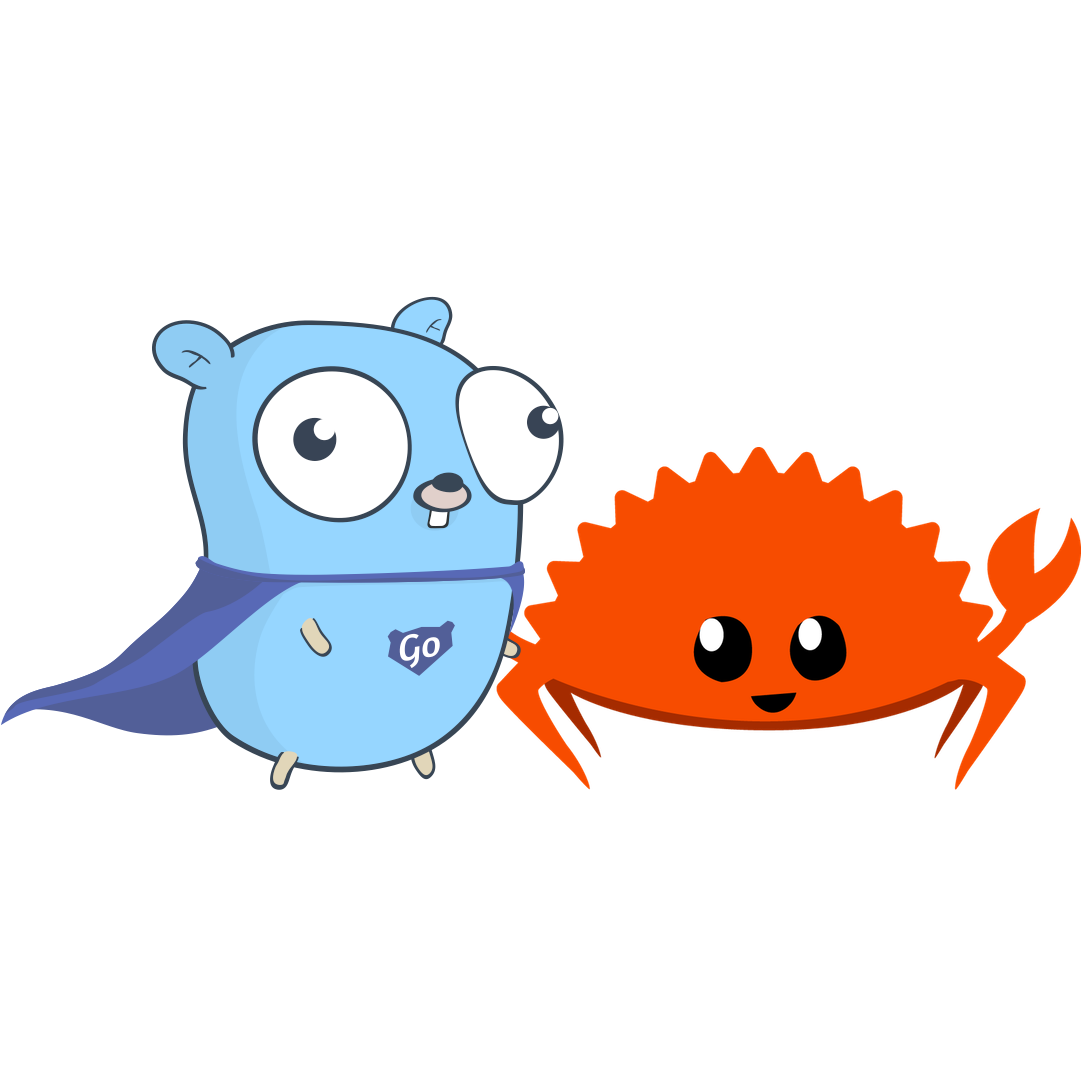I finally found the one serene, omnicompetent guru who writes perfect code! Here are her ten secret mantras of Go excellence.
Rust vs Go: ¿cuál elegir?
Un resumen de Rust y Go que destaca sus ventajas, señala lo que comparten y aclara sus diferencias clave. ¿Cuál deberías elegir?
Rust vs Go
Which is a better choice, Rust or Go? Which language should you choose for your next project, and why? How do the two compare in areas like performance, simplicity, safety, features, scale, and concurrency?
What's so great about Rust?
If you’ve heard about Rust and you’re wondering about the facts behind the hype, this is for you: no sales pitch, just a clear, point-by-point outline of why Rust is worth considering.
The secret consultant: your first steps to independence
At work, nobody need know you’re a secret consultant. As well as preparing you to run your own business someday, it might also make you a better employee.
The best Rust books for 2026, reviewed
There are many Rust books, but these are my favourites—and I think you’ll like them too. Here are my reviews of what I think are the truly essential Rust books available today.
Racing with disaster: data races in Go
Writing concurrent programs is easy, but understanding why they don’t work is hard. In this post, we’ll talk about data races, why they’re a problem, and how they arise in Go programs.
What are the best Go books in 2026?
What are the best Go books this year? Read my (relatively) unbiased recommendations for the Go books you should absolutely buy and read right now, whether you’re a beginner or expert Gopher.
That mockingbird won't sing: a mock API server in Rust
Faking it till you make it isn’t always the best strategy in life, but it can be a useful one in software engineering. Here’s an easy way to create a local HTTP server for testing Rust API clients.
When doomed stubs attack: blockchain voting and proof of work
If cryptocurrencies aren’t managed by any central authority, what’s to stop anyone just printing themselves some money and spending it on pizza? The answer, excitingly, is “math”.
Dips and wiggles: Prometheus, Grafana, and Checkly
Here’s how to connect your Checkly metrics to Prometheus and Grafana and turn them into useful dashboards.
“Wakeups”: the most important DevOps metric
“How many times were your people woken up by faults in production?” JAX DevOps talks to John about metrics, security, testing, and automation.
“Frowning at a screen for 200 hours”: on the writing process
John Arundel on his first steps as an author: “If just one person is helped and inspired by this book... then I’m not giving refunds to the others.”
Build bridges, not walls
We live in a world of walls, unfortunately, and some people would like to build even more of them. Whatever you think about that, the walls between software developers and IT operations staff don’t do anybody any favours.
Sysadmins take note
Working scientists keep a lab notebook in which they write down everything they did, and what the results were. Sysadmin work is also about careful, scientific, detailed experimentation, especially when troubleshooting.
Red, green, refactor: writing perfect Go, with TDD
Make it work, then make it right: the “red, green, refactor” technique helps us craft Go code that’s correct and beautiful. It’s easy! Shall we play a game?
Put a little Pixie in your cluster
Pixie is a powerful troubleshooting and telemetry tool for clusters. Let’s see how it can help solve the Case of the Sluggish Service.
A hard rain's a-gonna fall: parsing JSON in Rust
Everybody’s talking JSON at me, but I don’t hear a word they’re saying. Instead, I need to deserialize that data into a Rust value I can use. Luckily, there’s a crate for that.
The best Go training providers in 2026
Go is a unique language, and not all Go trainers are equal. Here's a breakdown of the community's favorite Go training providers and how to choose between them.
The best Rust training providers in 2026
Choosing the right Rust training provider can be a tricky business. Here’s a shortlist of the five most trusted Rust trainers, with a breakdown of each offering and a handy comparison chart.




















